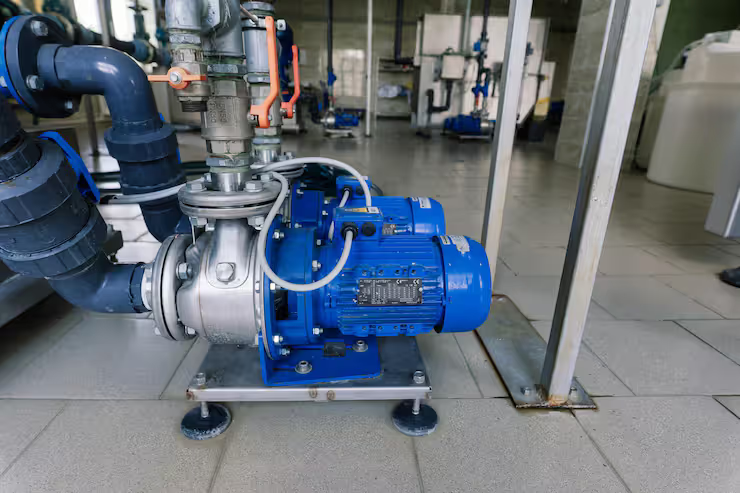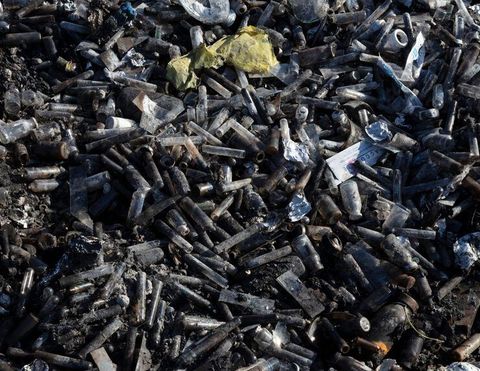The concept of compressing air or gas has been in practice since the late 19th century, but technological advancements over the past decades have made compressors more efficient, durable, and adaptable to modern industry needs. From powering pneumatic tools in workshops to supporting critical processes in refineries and plants, compressors are now central to global industrial operations.
Industrial compressors exist because industries require reliable systems to move and store gases under pressure, enabling efficiency and productivity in complex operations.
Importance
Industrial compressors matter today because they are essential to a wide range of sectors. Their importance can be understood in several dimensions:
-
Energy efficiency: Compressors directly influence energy consumption in plants. Modern models are designed to reduce energy waste.
-
Process continuity: Industries depend on compressors for consistent and reliable pressure levels, ensuring stable production.
-
Safety: Correctly functioning compressors prevent accidents by maintaining controlled pressure environments.
-
Environmental impact: With global focus on reducing emissions, compressors with better efficiency and lower leakage rates contribute to sustainability goals.
Industries affected include:
-
Oil and Gas – gas transport, refining, drilling
-
Manufacturing – powering tools, assembly lines
-
Construction – pneumatic drills, heavy equipment
-
Pharmaceuticals – clean compressed air for medicine production
-
Food and Beverage – packaging, refrigeration, carbonation
Without compressors, most large-scale industrial processes would struggle to function effectively.
Recent Updates
The industrial compressor market has seen significant updates over the past year, reflecting global economic shifts and technological progress:
-
2024: Increasing adoption of variable speed drive (VSD) compressors that adjust motor speed based on demand, cutting energy use by up to 35%.
-
2024–2025: Growth of oil-free compressors in sectors such as food, beverage, and healthcare, where contamination-free air is critical.
-
2025: Rising demand in Asia-Pacific markets, driven by expanding manufacturing in India, China, and Southeast Asia.
-
Sustainability focus: Companies are investing in compressors with advanced filtration and cooling systems to meet global emission standards.
Global reports project that the industrial compressor market will grow steadily between 2025 and 2030, fueled by urbanization, renewable energy projects, and automation in industries.
Laws or Policies
Industrial compressors are subject to various rules and regulations to ensure safety, energy efficiency, and environmental responsibility. These vary across countries but share common themes:
-
Energy efficiency standards: The U.S. Department of Energy (DOE) and the European Union (EU) have strict efficiency regulations for industrial equipment, including compressors.
-
ISO certifications: Compressors often need to comply with ISO 8573 (air quality standards) and ISO 1217 (performance testing).
-
Environmental regulations: In many regions, governments regulate emissions and mandate the use of low-leakage, energy-efficient models.
-
Occupational safety laws: Organizations like OSHA (Occupational Safety and Health Administration) in the U.S. enforce standards related to safe installation and operation of compressors.
-
India and Asia-Pacific: Many countries are aligning with international standards to meet climate commitments and improve industrial safety.
These policies not only protect workers but also encourage industries to adopt more sustainable and efficient technologies.
Tools and Resources
For businesses and professionals working with compressors, several tools and resources are available to simplify selection, maintenance, and monitoring:
-
Online calculators – Tools that help estimate compressor size, energy savings, and airflow requirements.
-
Monitoring apps – Many modern compressors come with mobile apps for performance tracking, predictive maintenance, and efficiency analysis.
-
Technical standards websites – ISO, ASME, and national standards organizations provide detailed resources on compliance.
-
Industry reports – Platforms such as Statista, MarketsandMarkets, and GlobalData offer updated insights into trends and forecasts.
-
Learning resources – Engineering forums, educational YouTube channels, and manufacturer knowledge bases provide step-by-step guides.
Types of Industrial Compressors
Different compressors suit different applications. The two major categories are positive displacement and dynamic compressors:
| Type | Description | Common Uses |
|---|---|---|
| Reciprocating Compressors | Use pistons to compress air | Small workshops, gas pipelines |
| Rotary Screw Compressors | Continuous rotary motion for stable airflow | Manufacturing, large plants |
| Scroll Compressors | Compact, quiet, and efficient | HVAC, medical, electronics |
| Centrifugal Compressors | High-speed impellers for large volumes | Oil refineries, petrochemical plants |
| Axial Compressors | Compress air using multiple rotating blades | Jet engines, power generation |
Each type offers unique advantages depending on the scale, energy requirements, and industry.
FAQs
What is the difference between oil-free and oil-lubricated compressors?
Oil-lubricated compressors use oil for cooling and sealing, making them durable but requiring maintenance. Oil-free compressors avoid contamination, making them suitable for food, healthcare, and electronics.
How do I know which industrial compressor is right for my business?
It depends on airflow requirements (CFM), pressure levels (PSI), energy efficiency goals, and industry regulations. Consulting an engineer or using online sizing calculators can help.
What are the main safety concerns with compressors?
Overheating, excessive pressure, and poor maintenance are key risks. Regular inspections, safety valves, and compliance with standards reduce accidents.
Are industrial compressors energy-efficient?
Modern compressors with variable speed drives (VSD) and smart monitoring systems are designed to cut energy use significantly. Choosing the right model helps reduce energy bills and environmental impact.
What industries benefit most from compressors?
Manufacturing, oil and gas, pharmaceuticals, construction, and food and beverage sectors all rely heavily on industrial compressors.
Conclusion
Industrial compressors are vital machines that power industries worldwide. They ensure process continuity, enhance efficiency, and support safety standards. With growing demand for sustainable, oil-free, and energy-efficient models, the sector is evolving rapidly.
Global policies encourage industries to adopt greener technologies, while tools and digital platforms make selection and monitoring easier than ever before. Whether in manufacturing, energy, or healthcare, compressors remain indispensable in driving modern industry forward.






